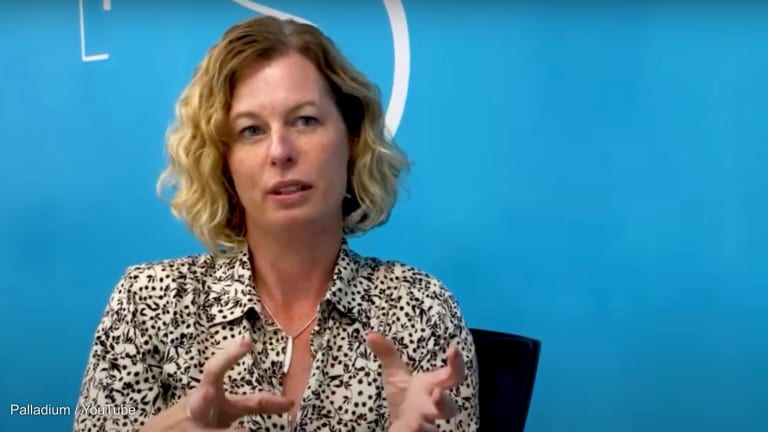
LONDON — Questions have been raised about whether private sector and nonprofit development organizations are being scrutinized equally over safeguarding practices in the wake of a series of sexual misconduct scandals in the sector.
During a United Kingdom parliamentary evidence session in London on Tuesday, representatives of private sector contractors suggested they had been left out of key safeguarding conversations since the scandals erupted in February.
Sinead Magill, a regional director at Palladium, one of the Department for International Development’s biggest private sector partners, pointed out that her company and its peers had not been invited to participate in Penny Mordaunt’s safeguarding summit in March. The summit, which was called soon after news of the Oxfam scandal in Haiti emerged in the media, brought together nonprofits and safeguarding experts with the Charity Commission and DFID, resulting in an action plan to start tackling the issue.
See more related topics:
► UK aid groups to be asked to report safeguarding spending
► More regulations and safeguards needed for aid sector, UK groups tell watchdog
“We did not participate in the safeguarding summit; I understand that was because of space constraints,” Magill told the International Development Committee. However, she added, “we’ve been given confidence that we’d be engaged in forward discussions.”
On March 2, Mordaunt expanded the government’s inquiry into sexual abuse in the aid sector to private contractors, and extended her order to report sexual abuse and harassment allegations to for-profit firms.
However, many of the initiatives launched in recent months have focused on regulation or oversight of nonprofit safeguarding, raising concerns that private sector groups — which spent 22 percent of DFID’s budget in the 2015/16 fiscal year — are being overlooked.
For example, a recent multimillion pound grant, part of which will go toward improving safeguarding measures among humanitarian and development organizations, was awarded to NGO network Bond, of which for-profit firms are not eligible for membership.
While DFID requires all contractors to host a whistleblowing hotline, other policies and procedures around safeguarding are not regulated.
“DFID has already introduced tough sanctions for human rights abuses including sexual exploitation in all new contracts and requires all suppliers to have a whistleblowing hotline for workers to report misconduct,” a DFID spokesperson told Devex. “Contracts are legally binding and a breach of contract can result in their termination.”
The spokesperson also said that DFID is “urgently reviewing safeguarding across all parts of the aid sector, including with our suppliers.”
Magill said that safeguarding policies within Palladium, as with other firms, are often shaped by donor demands. For example, certain policies had been built into Palladium programs funded by Australia’s Department of Foreign Affairs and Trade, which is “especially focused on child protection,” she said.
Last year, Palladium was awarded the DFID Humanitarian and Emergency Response Programme contract, which it will take over from Crown Agents in November. As part of the transition and in light of recent events, the company is now working with DFID to increase safeguarding capacity, and is putting together an “action plan which specifically addresses how Palladium responds to these issues in humanitarian response,” Magill said. “We’ve been engaging directly with DFID’s safeguarding team, particularly on our humanitarian program.”
However, beyond donor-specific demands, Sarah McGuire, director of technical services and governance at DAI Europe, another major DFID contractor, said that in many cases, her firm was left to “self-regulate.”
“When we asked our DFID colleagues in the procurement department, they said, ‘we expect you to self-regulate, we expect you to sort it out amongst yourselves.’”
— Sarah McGuire, director of technical services and governance at DAI EuropeAsked whether she felt private sector contractors had been treated differently to nonprofits in the U.K. government’s efforts to tackle safeguarding gaps in the aid sector, McGuire replied: “I don’t think we’re being singled out on this issue for particular scrutiny … When we asked our DFID colleagues in the procurement department, they said, ‘we expect you to self-regulate, we expect you to sort it out amongst yourselves’ … I think this is a feeling more toward the private sector than toward the NGOs, whereas there should be a common system for similar work.”
Both McGuire and Magill said they would “welcome” greater DFID oversight and regulation around safeguarding, namely as part of the ongoing supplier review, which imposes greater fiscal accountability on contractors and strengthens the code of conduct throughout contractor supply chains.
Magill said she saw “an opportunity to include it in the supplier review outcomes. And as that is strengthened to include more explicit guidance on safeguarding, I think we’d welcome the opportunity to demonstrate that we have taken that further, and I agree there should be some implication for people who don’t.”
Asked if she would support more involvement from DFID in setting universal standards for safeguarding and protections against beneficiary exploitation, she replied: “Why not? If we had a behavior charter, a requirement from all of our clients that we had a named safeguarding officer, if we had a requirement that sexual exploitation and abuse was included in performance appraisals, we would absolutely welcome that.”
However, McGuire cautioned, “the caveat is, we would then expect our client to take some responsibility for enforcement.”
McGuire added that DAI, like many larger nonprofits, is considering hiring “safeguarding officers where we have a bigger presence,” or designating senior officials with safeguarding experience as officers, to make sure that “in every project [we] have a safeguarding focal point.”
One of the challenges of that is cost, she said. “What we would really like … is that [DFID] would actually accept that this is a very necessary thing to have, and allow us to put in a budget line — it’s a really simple thing — that we have a safeguarding officer,” she said.








